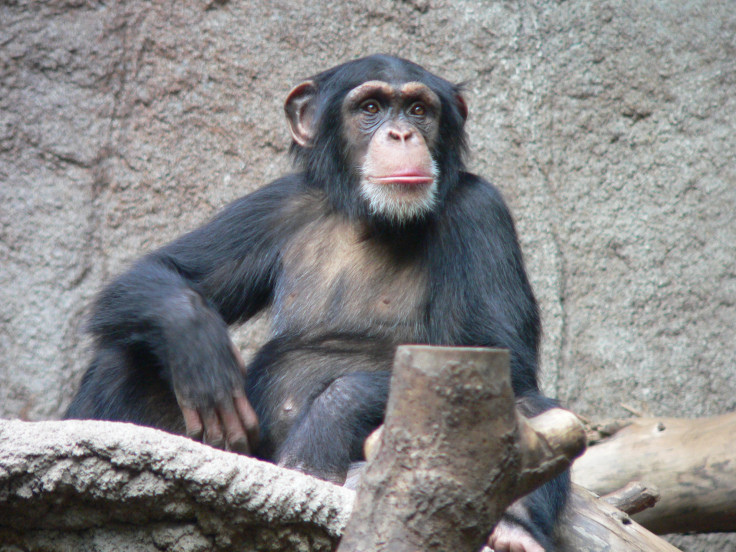Chimpanzee Facts: How Species’ Female Spear-Hunters Are Changing What We Know About Animal Behavior

Female chimpanzees are making their male counterparts look a little less like the top dogs of their species. Over the past several years, primatologists have documented female chimps native to the Fongoli region of Senegal exhibiting a behavior commonly associated with their male counterparts: hunting and skewering small nocturnal primates called bush babies by using tools. The practice makes chimps the only animals other than humans to use tools as weapons for hunting relatively large prey, say U.S. researchers from Iowa State University, whose work was published Wednesday in the journal Royal Society Open Science.
While both male and female chimpanzees were seen using tools to kill their prey, tool use was more common among the females -- males typically hunted for food by hand. "It's just another example of diversity in chimp behavior that we keep finding the longer we study wild chimps," Jill Pruetz, an anthropology professor and Walvoord Professor of Liberal Arts & Sciences who led the research team at Iowa State, said in a statement. "It is more the exception than the rule that you'll find some sort of different behavior, even though we've studied chimps extensively."
Senegal’s Fongoli chimps, a species of savanna-woodland chimps, are unique in that they spend most of their time on the ground rather than in the trees. Pruetz and her team found that the chimps made their own hunting tools out of tree branches. Some even sharpened the ends using their teeth to make miniature spears.
Primatologists have long known that chimpanzees use sticks to “fish” termites and other insects out of tree logs and other hiding places, but spear-making is a behavior that only recently gained attention. "Fishing for termites is a very different activity than jabbing for a bush baby," said Pruetz. "With fishing, termites grab on to a twig and don't let go and the chimp eats the termites off the twig. When hunting, the bush baby tries to bite, escape or hide from the chimp.” The new study builds on Pruetz’ previous research documenting spear use among Fongoli chimps in 2007.
Tool-using isn’t unique to chimpanzees. A certain wasp species uses pebbles as hammers to pat down soil to seal their nests. One species of octopus has been known to carry around coconut shells for protection against predators.
"One of the stories we have is polar bears getting up on a cliff and hurling great chunks of ice down on something like a walrus to kill it," Robert W. Shumaker, author of a book exploring animals and tool use called “Animal Tool Behavior,” told National Public Radio in 2011.
© Copyright IBTimes 2024. All rights reserved.






















